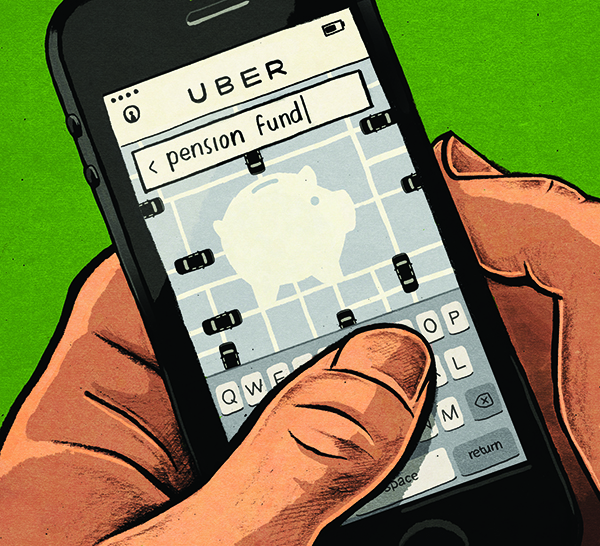Self-employed underdogs?
Editorial: If you ask Uber drivers why they work for the app, they generally reply that while the pay per client is less, there is no downtime between customers and they are free to choose when they want to work.
Those who do work for the app do not generally appear unhappy to be doing so, although of course that might be because the other option – driving for a mini cab company – is perhaps even less attractive.
Some might indeed see the drivers as self-employed, like the app does, while others point out that Uber drivers cannot set their own fares.
A court has now ruled that the company’s drivers are in fact not self-employed but ‘workers’ under UK law, and should therefore have certain entitlements – including, potentially, to pension contributions, although Uber said it will appeal the court’s decision. (Read our article on page seven.)
The case brings to the fore how technology is pushing the boundaries of the law, as well as prompting social change and confusing the picture of productivity even more.
Our age has created work spheres that evade traditional definitions and differences between employees, workers and the self-employed.
Some might attribute this is to technology itself and its power to disrupt social patterns. Others will see it as an attempt by corporations to minimise obligations towards their workforce.
The UK has seen a rise in those classing themselves as self-employed. The high number – 4.6m last year – has been called “a ticking time-bomb” by Thomas Brooks, senior policy researcher at the Citizens Advice Bureau, while the Office for National Statistics has found that the recent growth in self-employed workers “is in part related to workers managing their retirement in a different way to previously”.
So while technology creates new forms of work, over which societies across the globe are currently negotiating, changes in work patterns and labour force structure are also linked to how and when people can afford and want to retire.
The world of work will continue to change, but it is not just technology that is behind it. Although in future our taxis and buses will most likely be self-driving, creating yet new complexities and areas for conflict, there will also have to be continued efforts to manage the societal impact of rising longevity and low retirement incomes.
Sandra Wolf is editor at Pensions Expert. You can follow her on Twitter @SandraCWK and the team @pensions_expert


